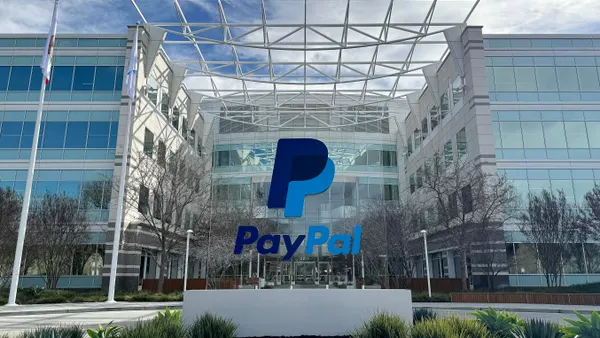Lakshmi Sushma Daggubati is a product manager at Mastercard, specializing in reporting and analytics products within commercial payments. She is based in O'Fallon, Missouri. The submission reflects the writer’s views only.
In the rapidly evolving landscape of business-to-business transactions, staying ahead of the curve is no longer a choice — it's a necessity. As technology continues to reshape the way businesses operate, one area that demands urgent attention is the adoption of digital wallets.
Just as Gen Z's influence has reshaped consumer expectations, the rise of digital wallets is transforming the B2B payments landscape, and businesses that fail to adapt risk being left behind.
Digital wallets, once primarily associated with consumer transactions, have now firmly established their presence in the B2B realm. These versatile tools offer a myriad of benefits that extend far beyond mere convenience. From streamlining payment processes to enhancing security and enabling seamless transactions, the advantages of embracing digital wallets are manifold.

One of the most compelling reasons for B2B organizations to adopt digital wallets is the need to meet the evolving preferences of their clientele. Just as consumers have come to expect the convenience of mobile payments in their everyday lives, businesses now anticipate similar efficiency and ease of use in their professional transactions. Digital wallets offer a solution that caters to these expectations, providing a frictionless payment experience that aligns with the demands of modern business.
Moreover, digital wallets represent a paradigm shift in the way B2B organizations manage their finances. By digitizing payment processes, businesses can streamline operations, reduce manual errors, and improve cash flow management. Gone are the days of cumbersome paper trails and lengthy reconciliation procedures — digital wallets offer a centralized platform for executing, tracking, and reconciling transactions in real-time, empowering businesses to operate more efficiently and effectively.
Security is another paramount concern for B2B organizations, particularly in an age where cyber threats loom large. Digital wallets leverage advanced encryption and authentication technologies to safeguard sensitive financial information, providing peace of mind for businesses and their clients alike. With data breaches becoming an increasingly common occurrence, the robust security measures offered by digital wallets are indispensable for protecting against potential threats and maintaining trust in the B2B ecosystem.
Furthermore, the adoption of digital wallets opens up new avenues for innovation and collaboration within the B2B space. By embracing emerging payments technologies, businesses can foster deeper connections with their partners and customers, driving greater efficiency and value across the supply chain. Whether through integration with existing platforms or the development of bespoke solutions, digital wallets offer endless possibilities for optimizing processes and unlocking new opportunities for growth.
However, despite the myriad benefits they offer, the adoption of digital wallets in the B2B realm has been slower than anticipated. Many organizations remain hesitant to embrace change, clinging to outdated payment methods and processes out of familiarity or inertia. Yet, as the pace of digital transformation accelerates, complacency is no longer an option.
B2B organizations must recognize the imperative of embracing digital wallets and take proactive steps to integrate them into their operations.
The rise of digital wallets represents a transformative opportunity for B2B organizations to revolutionize their payment processes and stay ahead in an increasingly competitive landscape. By embracing digital innovation, businesses can enhance efficiency, improve security, and meet the evolving expectations of their clientele.
The time to embrace the digital frontier is now — those who hesitate risk being left behind in the march towards progress.










